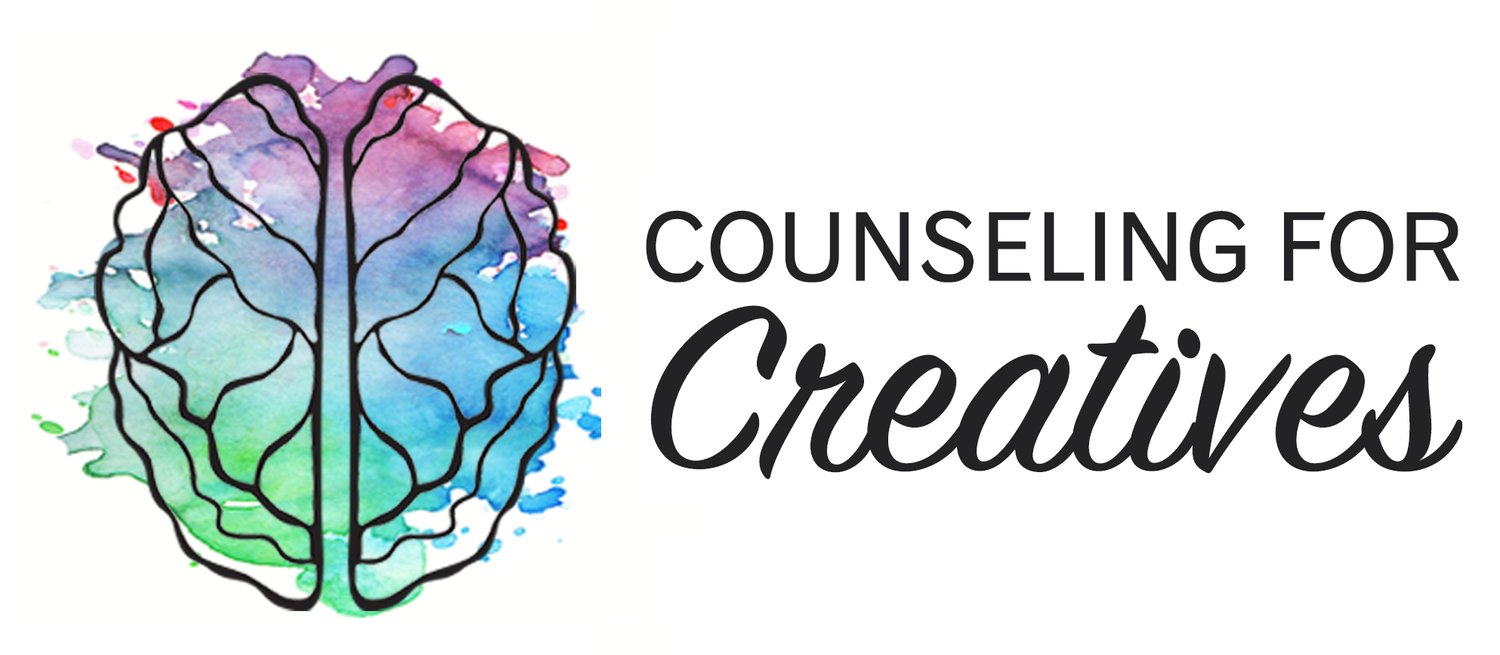Reframing Anxiety as Protection
As I write this, we’re in the midst of the Coronavirus-19 outbreak in the U.S. Here in Maryland, our schools and all non-essential businesses are closed. Those of us who can, are working from home. I am doing teletherapy from my home. People are scared and anxiety is high. I am not immune to this anxiety. I’ve had anxiety most of my life and have been actively aware of and working with it for the past 12 years.
I was already going to write a post about anxiety this month, so I figured I’d go on with it, adding some things about the current environment.
I’d like to help people understand that anxiety is protection.
Anxiety is our bodies and minds attempting to protect us from danger. This is the mind working at a base survivalist level: We sense danger and we go on high alert to protect ourselves from that danger - either fighting, fleeing, freezing, or fawning. This is how humans and animals have evolved and survived.
The issue with anxiety is that sometimes we feel it when we’re NOT in imminent danger. Often, this is linked to trauma. Trauma, to put it simply, is defined as any huge event or maybe a seemingly small event that makes us feel unsafe - either physically or emotionally - and changes the way we feel, think, and behave. There are genetic links to anxiety as well - some of us are more prone to it than others - and they could be connected to generational trauma and the effect it has had on our genes.
At the moment, we are all going through shared trauma. Some of us are scared of getting sick or scared of those we love getting sick. Some of us are sick or have loved ones who are sick. Some of us have already lost loved ones to the virus. Some of us are worried about or have already lost our jobs and our money. Some of us are worried about the world as a whole. All of this can trigger old trauma and bring up all sorts of emotions (or even numbness). So the real danger we feel can be exacerbated by the old danger we’ve experienced before. And then anxiety can take over our bodies and minds, putting us on alert to try and keep us safe.
The problem here is that having long bouts of anxiety actually makes us less able to react in times of imminent danger and can have a negative effect on the immune system.
Here is a simple process to help you manage anxiety from this informed position:
Notice what triggers you. A trigger is anything that sets your body and mind on high alert. It can be anything from a sick relative to a grim news report. It may feel like a racing heart, a racing mind (lots of thoughts all at once or in quick succession), a sick stomach, or a clenched jaw.
Try and pause between the trigger and your reaction. This can be tough. You may not be able to pause until after your reaction. That’s ok, too.
How do we do this?BREATHE
Thank the anxiety for trying to protect you. I know this sounds weird, but we often get anxious about our anxiety. When we understand it as something more benevolent, it can help with our reaction.
Consider your options. Do you HAVE to do something right now? CAN you do something right now? Can you wait? How would you prefer react?
Shift your reaction to your chosen option.
Choose a relaxation technique to help you calm your mind and body, such as deep breathing or taking a walk. Here are some other options you can find online:
Oak - totally free and beautifully simple iPhone app with meditation and breathing exercises
Relax Melodies - a mostly free app with customizable sleeping and calming sounds and meditations
Headspace, Calm, + Insight Timer - free + paid Android + iPhone meditation apps - Headspace + Calm are currently providing free subscriptions for healthcare providers
The Tapping Solution - a mostly free app - If you’ve never heard of tapping or never tried it, I urge you to give it a shot. It goes for anxiety in the body, honors your feelings, and allows you to relax. It takes only 10 minutes and It is POWERFUL. I love their free Releasing Anxiety meditation the most. They’ve also created an entire free series of tapping meditations specifically for anxiety around the Coronavirus.
Yoga - Moving your body really really helps. I love Yogini Melbourne and Yoga with Adrienne on YouTube - they both have tons of short routines on their channels, many that are geared toward anxiety and stress.
Anxiety is not your enemy, it is simply part of your body’s warning system. If we can learn to work with it instead of fighting against it - understanding that it will be there especially at times like these - we can find what works best for each of us as we continue to move through our lives.

